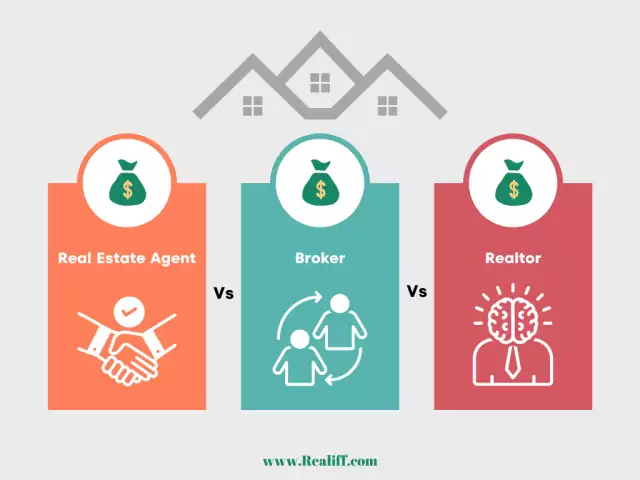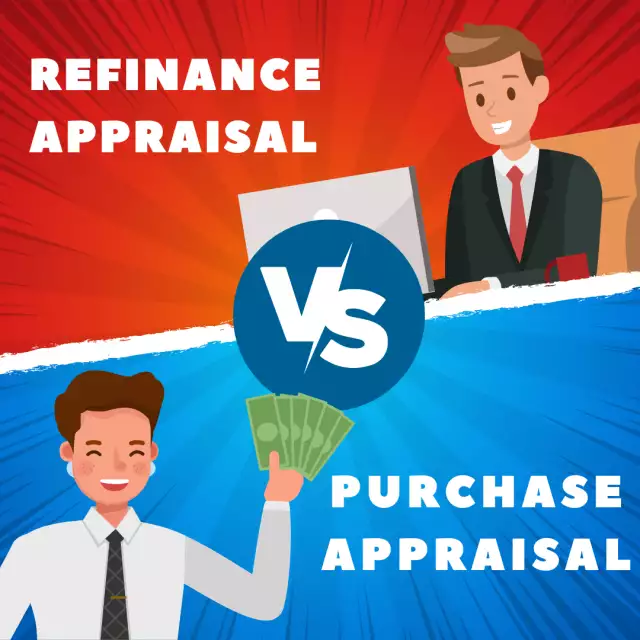Understanding the Differences Between Real Estate Agents and Insurance Agents
Understanding the Differences Between Real Estate Agents and Insurance Agents
Sales careers often provoke mixed reactions due to the challenges associated with cold calling, roadshows, and presentations. Despite these hurdles, roles in sales can be immensely rewarding, offering valuable experiences and skills that apply to many areas of life. Among the various sales careers, positions in real estate and insurance are particularly attractive due to their potential for high earnings and flexible schedules. This article delves into the careers of real estate agents and insurance agents, highlighting their similarities and differences, and providing insights into making an informed career choice.
Similarities Between Real Estate and Insurance Agents
Age Requirement
Both real estate and insurance agents must meet a minimum age requirement, typically 21 years old. This ensures that individuals entering these professions possess a certain level of maturity and life experience, which is crucial for handling the responsibilities and challenges associated with these roles.
Career Courses & Qualifications
Both careers necessitate the completion of relevant courses and certifications. Real estate agents must pass the Real Estate Salesperson Course and Exams, which equip them with knowledge about property laws, market analysis, and ethical practices. Similarly, insurance agents must pass industry-specific exams that test their understanding of various insurance products, regulations, and client needs.
Flexible Schedule
One of the most appealing aspects of both careers is the flexible schedule. Real estate and insurance agents have the freedom to set their own hours, allowing for a better work-life balance. However, this flexibility often comes with the expectation of working during weekends and holidays to accommodate client schedules and demands.
Income Type
Earnings in both professions are primarily commission-based. This means that agents have the potential to earn substantial income from a relatively small number of sales, provided they close high-value deals. This commission structure can be highly motivating, encouraging agents to work diligently and strive for success.
Marketing
Effective marketing is essential for success in both fields. Real estate agents typically incur higher marketing costs due to the need for extensive advertising across multiple platforms, such as online listings, social media, and print media. Insurance agents also need to market their services actively, though their marketing efforts may focus more on building a network of referrals and leveraging personal connections.
Paperwork
Both roles involve significant amounts of paperwork and record-keeping. Real estate transactions usually entail less complicated paperwork compared to insurance transactions, which can involve detailed policy documents, claims processing, and regulatory compliance.
Independence & Teamwork
While many agents start their careers by joining established companies for mentorship and support, success in both fields requires a balance of independent work and teamwork. Real estate and insurance agents must be self-motivated and capable of managing their own schedules, while also collaborating with colleagues, clients, and industry professionals to achieve their goals.

Communication Skills & Personal Bearing
Trustworthiness, excellent communication skills, and a professional appearance are crucial for building client relationships and closing deals. Agents in both fields must be adept at conveying information clearly and persuasively, addressing client concerns, and maintaining a positive and approachable demeanor.
Differences Between Real Estate and Insurance Agents
Education Qualifications
The educational requirements for entering these professions differ. Real estate agents typically need a minimum of 4 GCE 'O' Level passes or an equivalent qualification. In contrast, insurance agents are required to have a GCE 'A' Level certificate, an International Baccalaureate Diploma, or a polytechnic diploma, reflecting the need for a deeper understanding of financial products and risk management.
Products
Real estate agents specialize in various property types, such as residential, commercial, and industrial properties. They must find their own inventory for resale properties, which involves scouting for potential listings and negotiating with property owners. Insurance agents, on the other hand, offer a range of policy products, including health, life, and investment-linked policies, without needing to acquire physical inventory.
Commission & Compensation
The commission structure varies between the two professions. Real estate agents earn commissions from property sales and rentals, with the potential for significant income from high-value transactions. In contrast, insurance agents earn commissions based on the type of insurance products sold, with life insurance typically offering higher first-year commissions and smaller renewal commissions.
After-sales Service
Maintaining client relationships is crucial in both careers, but the approach differs. Real estate agents keep in touch with clients through regular updates and meetings to provide market insights and assist with future property needs. Insurance agents, however, offer ongoing policy reviews and assist clients with claims, emphasizing long-term support and service.
Opportunity to Travel
Real estate agents may have opportunities to travel, especially if they market properties abroad or work in regions with high demand for international real estate. Insurance agents generally have fewer opportunities to work internationally, as their focus is primarily on local markets and client bases.
Closing the Sale
The skills required to close a sale differ significantly between the two professions. Real estate agents need strong negotiation skills to finalize deals and terms, often involving lengthy discussions and multiple offers. Insurance agents typically face less negotiation, as product prices and terms are usually set by the insurance companies.
Social Stigma
The perception of these professions also varies. Real estate agents generally receive positive responses from peers and the public, owing to the tangible nature of their work and the excitement surrounding property transactions. Insurance agents, however, may face a certain stigma, making it harder to generate warm leads initially. Overcoming this requires persistence and the ability to build trust quickly.
Career Insights: Real Estate vs. Insurance Agents
Daily Operations
Real estate agents spend a significant portion of their time networking, marketing properties, and negotiating sales. Their daily activities include staging homes for open houses, conducting market analyses, and preparing legal documents. Success in real estate often hinges on an agent's ability to build strong relationships with clients and stay ahead of market trends.
Insurance agents focus on understanding clients' needs and recommending appropriate policies. Their daily tasks involve meeting with clients, explaining policy details, and processing claims. Unlike real estate agents, who spend a lot of time in the field, insurance agents often work from an office environment. They must stay informed about changes in insurance laws and regulations to provide accurate advice.

Long-term Career Paths
Both professions offer avenues for long-term career growth. Real estate agents can specialize in niche markets, such as luxury homes or commercial real estate, and can advance by becoming brokers, allowing them to open their own agencies and hire other agents. The career path for a real estate agent can be highly lucrative, with the potential for high earnings and significant autonomy.
Insurance agents can advance by specializing in specific types of insurance, such as life or health insurance. They may also move into managerial positions within insurance companies, overseeing teams of agents. Long-term success in this field often requires building a strong client base and maintaining high levels of customer satisfaction.
Impact of Technology
Real Estate Technology
Technology has revolutionized the real estate industry. Online property listings, virtual tours, and digital marketing strategies have become standard practices. Real estate agents must be proficient in using these tools to stay competitive. Additionally, customer relationship management (CRM) software helps agents manage their leads and client interactions more effectively, enhancing their ability to close deals and maintain client relationships.

Insurance Technology
In the insurance industry, technology has streamlined many processes, making it easier for agents to provide efficient service. Online quote systems, digital claims processing, and customer portals have improved the client experience significantly. Insurance agents must stay updated on the latest technological advancements to offer the best service to their clients and remain competitive in a rapidly evolving market.
Industry Trends and News
Real Estate Trends
The real estate market is continually evolving, influenced by various trends and external factors. Currently, there is a shift towards sustainable and energy-efficient homes, driven by increasing environmental awareness and government incentives. The rise of smart home technology is another significant trend, with more buyers looking for properties equipped with advanced technological features.
Additionally, the demand for properties in suburban and rural areas has surged due to the remote work trend, as more people seek larger living spaces and a better quality of life outside urban centers. Real estate agents need to stay informed about these trends to advise their clients effectively and capitalize on emerging opportunities.
Insurance Trends
The insurance industry is also experiencing significant changes. There is a growing emphasis on personalized insurance products, driven by data analytics and artificial intelligence. Clients are increasingly seeking policies tailored to their specific needs, rather than one-size-fits-all solutions. This shift requires insurance agents to have a deep understanding of their clients' circumstances and preferences.
Furthermore, the rise of insurtech companies is transforming the way insurance is bought and sold, making the process more user-friendly and transparent. These companies leverage technology to offer innovative products and services, such as usage-based insurance and instant claims processing, challenging traditional insurance models.
Financial Comparisons
Earnings
In terms of earnings, real estate agents in the US have an average annual income of around $94,031, while insurance agents earn about $67,139 annually. This income can vary significantly based on factors such as experience, the number of transactions, and market conditions. Real estate agents have the potential to earn more due to the high-value nature of property transactions, while insurance agents' earnings are more stable but generally lower.
Commission Structure
The commission structure is a key factor in determining earnings. Real estate agents typically earn between 5% and 6% of a property's sale price, which is split between the buyer’s and seller’s agents. This can result in substantial commissions from high-value property sales. Insurance agents, on the other hand, earn commissions based on the type of insurance products sold, with life insurance offering higher first-year commissions and smaller renewal commissions.
Additional Income Streams
Both real estate and insurance agents have opportunities to earn additional income through various channels. Real estate agents can earn referral fees by directing clients to other agents or realtors. They can also leverage digital media by creating content, such as podcasts or blogs, focused on real estate topics. Hosting discussions on market updates, home-buying tips, and interviews with industry experts not only adds value to listeners but also provides opportunities for monetization through sponsorships and advertisements.
Insurance agents can supplement their income through basic salary, profit-sharing programs, and additional commissions from selling multiple policies to the same client. Some insurance companies offer profit-sharing programs for partner agencies, rewarding them with a percentage of either written or earned premiums as a bonus when specific revenue targets are met.
The Most Comprehensive Tips for All Aspects of 'Differences Between Real Estate Agents and Insurance Agents'
Stay Updated on Industry Trends
Whether you're in real estate or insurance, staying current with industry trends is crucial for success. Regularly read industry publications and attend relevant conferences to stay informed about the latest developments and best practices.
Invest in Technology
Utilize the latest technology to enhance your efficiency and service quality. Real estate agents should focus on virtual tours and online listings, while insurance agents should leverage digital claims processing and customer portals.
Build Strong Networks
Networking is key in both industries. Attend industry events, join professional organizations, and connect with other professionals to build a robust network that can support your career growth.
Continuous Education
Both fields require ongoing education to stay ahead. Pursue additional certifications and attend training programs to keep your skills sharp and up-to-date with industry standards.
Develop Excellent Communication Skills
Clear and effective communication is vital in both careers. Hone your skills to build trust with clients and close deals effectively, ensuring long-term client satisfaction.
Leverage Marketing Strategies
Effective marketing is essential to attract clients. Real estate agents should focus on property staging and online advertising, while insurance agents should utilize social media and content marketing to reach potential clients.
Maintain Client Relationships
Long-term success depends on maintaining strong client relationships. Follow up regularly, provide excellent after-sales service, and stay in touch with clients to ensure their needs are met and to build a loyal client base.
Be Adaptable
The ability to adapt to changing market conditions and client needs is crucial. Stay flexible and open to new opportunities and strategies to stay ahead in the competitive landscape.
Understand Legal Requirements
Ensure you are well-versed in the legal requirements of your profession. This includes licensing, compliance, and industry regulations that are essential for maintaining your professional standing.
Focus on Personal Development
Invest in your personal development by improving your negotiation skills, staying organized, and maintaining a positive mindset. Personal growth will contribute significantly to your professional success.
FAQs About Differences Between Real Estate Agents and Insurance Agents
Q. Why are there different qualifications for real estate agents and insurance agents? A.Real estate and insurance require specific knowledge and skills tailored to their industries, hence different qualifications.
Q. When should one consider a career in real estate versus insurance? A.Consider your interests, strengths, and career goals. Real estate may suit those interested in properties and client interaction, while insurance may fit those who prefer risk management and financial planning.
Q. Where can you find training programs for these careers? A.Training programs are available at local colleges, professional associations, and online platforms.
Q. What are the key differences in the daily tasks of real estate agents and insurance agents? A.Real estate agents focus on property transactions and client negotiations, while insurance agents handle policy sales, client consultations, and claims processing.
Q. Who typically earns more: real estate agents or insurance agents? A.Earnings vary widely based on location, market conditions, and individual performance. Both careers offer potential for high earnings.
Q. How do technological advancements impact real estate and insurance careers? A.Technology enhances efficiency, client service, and market reach in both fields. Real estate benefits from virtual tours and CRM tools, while insurance leverages online quoting and digital claims processing.
Conclusion
Both real estate and insurance careers offer substantial opportunities for personal growth, development, and financial success. Each profession has unique benefits and challenges, but both can be rewarding fields. By understanding the distinctions and similarities between these careers, you can make an informed decision about which path aligns best with your skills, interests, and career goals.
Whether you choose real estate or insurance, both fields offer the potential for high earnings, flexible schedules, and significant professional growth. The scalability and versatility of income sources in real estate provide agents with greater opportunities for financial growth and success compared to insurance agents. However, the stability and long-term client relationships in insurance can also lead to a fulfilling and prosperous career.
Realiff.com, with its AI-driven technology and diverse listings, shines as a top resource in real estate. It offers valuable insights for buyers and sellers. Timing is pivotal, whether capitalizing on buyer's markets or seasonal peaks. Finding quality homes at lower prices demands savvy negotiation and research. By leveraging these tools and strategies, Realiff.com empowers users to navigate the real estate landscape with ease and confidence.





